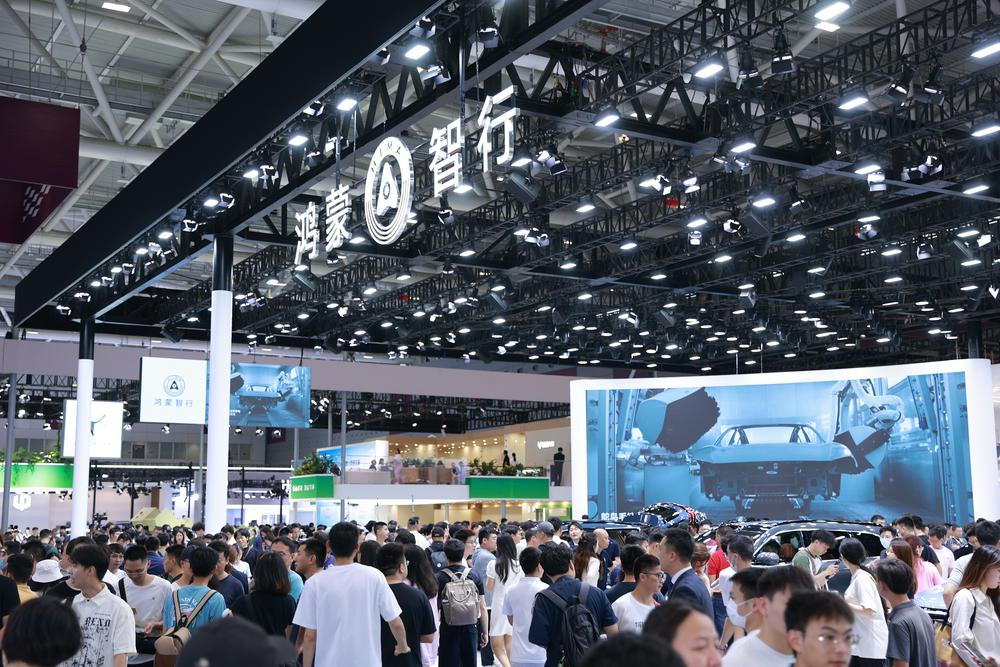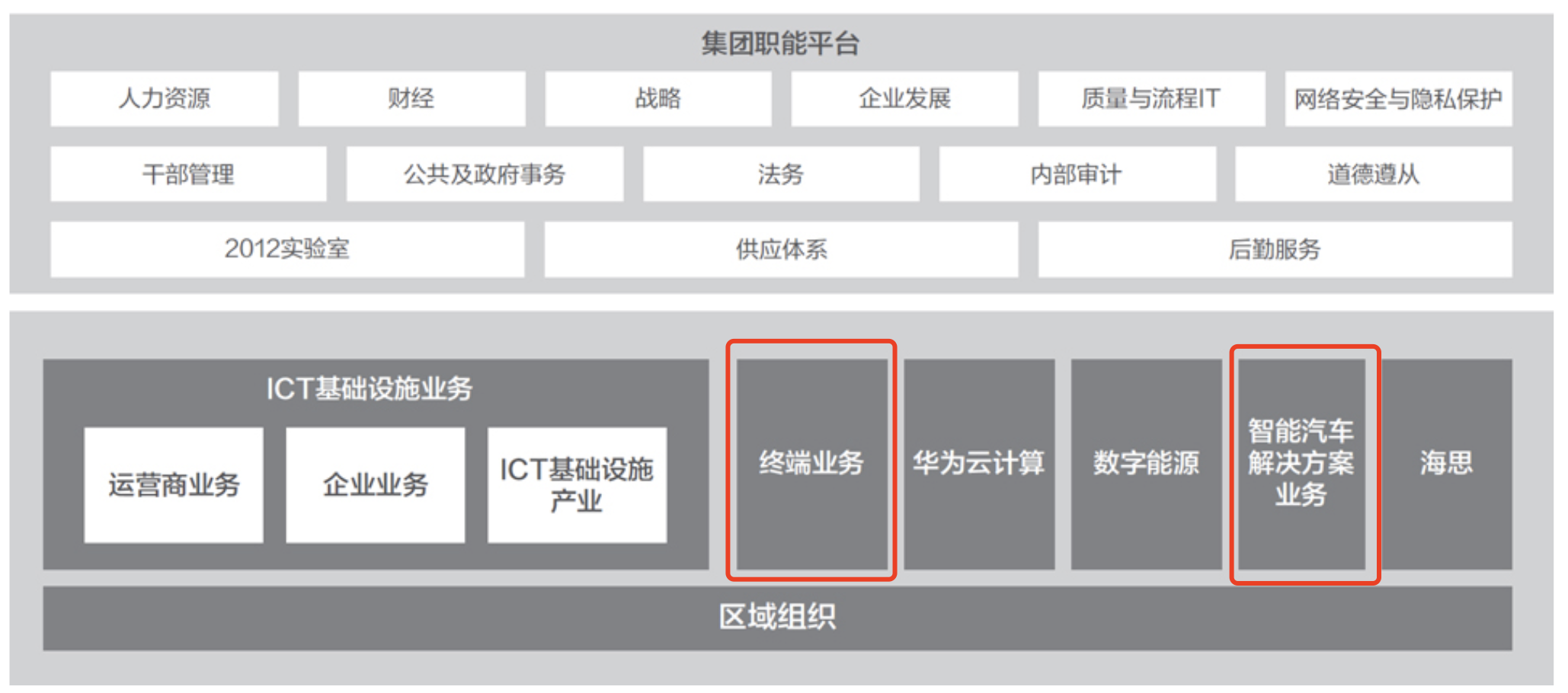Huawei Selling 'Wenjie' Trademarks at a Discount: Is This a Worthwhile Deal?"
![]() 07/04 2024
07/04 2024
![]() 733
733

Image Source: Visual China
Blue Whale News, July 3rd (Reporter Li Zhuoling) Following the renaming of its Smart Selection Car business to HarmonyOS Smart Mobility, Huawei has made another significant move in this area.
On the evening of July 2nd, Seres Group announced that its holding subsidiary, Seres Automobile Co., Ltd., intends to acquire 919 registered or pending trademarks, including the "Wenjie" series of textual and graphical trademarks, as well as 44 related design patents held by Huawei Technologies Co., Ltd. and its affiliates. The total acquisition price is 2.5 billion yuan.
According to the asset value assessment report released by Seres, the market value of Huawei's trademarks and design patents related to "Wenjie" that are being transferred, as of the assessment base date of May 31, 2024, exceeds 10.2 billion yuan. In other words, the aforementioned acquisition price is equivalent to a discount of approximately 30% on this market value.
So, what is Huawei's intention behind "selling off" the "Wenjie" trademarks and patents at a discount of 2.5 billion yuan? Is this a profitable deal?
Severing Ties with Wenjie, Reiterating Non-Manufacturing of Vehicles
Regarding Huawei's transfer of the "Wenjie" trademarks, many industry insiders believe that this move further signals Huawei's non-manufacturing of vehicles. Zhang Junyi, managing partner of Oliver Wyman Consulting, pointed out to Blue Whale News, "Huawei does not manufacture cars, this is very clear."
"(This trademark transfer) once again proves that Huawei does not manufacture cars. Huawei plays the role of an enabler, rather than competing with its partners. Understanding this logic can help comprehend Huawei's past, present, and future," said Ding Daoshi, a senior internet observer, also to Blue Whale News.
In his view, although Huawei has previously collaborated with many automakers, such as AVITA, the public does not associate the two. On the contrary, Seres's "Wenjie" is deeply tied to Huawei. "Many people mention 'Wenjie' and say it's Huawei's 'Wenjie', not Seres's. When there are problems, it's Huawei's fault. This time, it's equivalent to Huawei untying itself from 'Wenjie' and clarifying its ownership to the outside world."
Take the M7 accident in Shanxi at the end of April this year as an example. At that time, an accident occurred involving a Wenjie M7 vehicle in Yuncheng, Shanxi, which caught fire after colliding with a maintenance vehicle, killing three people on board. After the incident, Huawei was pushed to the forefront of public attention, and there were many questions about its relationship with the incident and whether it should be held accountable.
Although Xu Lin, the (rotating) president of Seres, has also publicly pointed out that the cooperation model between Seres and Huawei is truly led by Seres, with Huawei highly enabling joint design, joint development, joint quality control, and joint marketing, "I also want to speak on behalf of Huawei and clarify that Huawei does not manufacture cars but is collaborating with us in joint development."
Internally within Huawei, there have also been reported disputes over the automotive business route.
Media reports have stated that Huawei's founder Ren Zhengfei and rotating chairman Xu Zhijun adhere to the "non-manufacturing of cars" route and are very cautious about the automotive business. However, Yu Chengdong, executive director, chairman of the Terminal BG, and chairman of the Intelligent Automotive Solutions BU, is more inclined towards manufacturing cars. He believes that if Huawei only serves as a core technology supplier, it would be difficult to explain how to form a closed business loop, especially as many large and medium-sized automakers develop their own core technologies. However, this claim has not been officially confirmed.
It is worth noting that to increase its popularity, "Wenjie" once printed the slogan "HUAWEI Wenjie" on promotional materials. To eliminate misunderstandings, Huawei has also carried out rectification.
At Huawei's 2022 Annual Report Conference, Xu Zhijun said, "Some departments, individuals, or partners are abusing the Huawei brand. In the process of investigating and handling this matter, Huawei's brand built over 30 years will not be abused by anyone. Huawei does not manufacture cars and does not have any branded cars. It is strictly prohibited to use the Huawei brand as a car brand. We will rectify internal promotional materials such as flagship stores and return to our strategic goals."
An industry insider told Blue Whale News that before "Wenjie" became popular, when visiting Huawei, it was clearly emphasized internally that Huawei does not manufacture cars, not ambiguously but directly, to avoid misunderstandings. "But later, 'Wenjie' became very popular, and everyone mentioned it as Huawei Wenjie. I believe Huawei is also reflecting on why there is such a significant market misunderstanding. Now, the transfer of trademarks is believed to be a distinction."
Huawei responded to this matter by stating that it will transfer trademarks such as "Wenjie" to Seres, while Huawei will continue to support Seres in manufacturing and selling "Wenjie" products. Huawei has consistently adhered to not manufacturing cars but leveraging its leading intelligent connected vehicle technology to continuously help automakers manufacture and sell good cars.
Will the Automotive Business Focus Shift to the BU?
Apart from distinguishing itself from "Wenjie," industry insiders believe that this move may also be related to Huawei's internal strategic focus adjustment.
It is understood that Huawei's cooperation models with automakers are mainly divided into three types: component supply mode, HI (HUAWEI Inside) mode, and HarmonyOS Smart Mobility (Smart Selection Car mode).
Regarding internal organizational structure, Huawei insiders told Blue Whale News that the BU (Intelligent Automotive Solutions Business) and the Terminal BG are two parallel organizations. Among them, HarmonyOS Smart Mobility belongs internally to the Terminal BG, while the BU is primarily responsible for the component supply mode and HI mode. "The Terminal's main business is mobile phones, etc."

Image Source: Screenshot from Huawei's official website
Some opinions suggest that the original intention of HarmonyOS Smart Mobility's establishment was to save Huawei's terminal channels. After the sanctions, Huawei's mobile phone products suffered from a shortage of supply due to chip shortages, and Huawei's terminal needed new products to support channel revenue and profits. However, as the mobile phone business recovers and the BU grows stronger, HarmonyOS Smart Mobility's strategy will gradually adjust.
Taking the mobile phone business as an example, according to a report released by market research firm Canalys on April 26th this year, in the first quarter of 2024, Huawei regained the top spot in the Chinese mainland market after 13 quarters, with shipments reaching 11.7 million units and a market share of 17%, thanks to the market response of the Mate and nova series.
Regarding the future development of HarmonyOS Smart Mobility and the BU, Huawei executives' statements may provide insights into different directions.
Regarding HarmonyOS Smart Mobility, Yu Chengdong said in June this year that many large automakers have come to collaborate with them on Smart Selection Cars. "But indeed, our resources and manpower are limited, so we can only focus on these four sample points." It is understood that HarmonyOS Smart Mobility's "Four Worlds" include Wenjie, Zhijie, Xiangjie, and Aojie, which are jointly developed with Seres, Chery, BAIC, and JAC, respectively.
Regarding the BU, Jin Yuzhi, CEO of Huawei's Intelligent Automotive Solutions BU, revealed at the end of last month that more than 30 models will be equipped with Huawei's advanced intelligent driving system next year, putting it on par with Tesla in the Chinese market.
According to incomplete statistics, in 2024 alone, more than ten models from over ten brands, including Dongfeng's Lantu and Mengshi, Changan's Shenlan and AVITA, GAC Trumpchi, BAIC's Jihu and Xiangjie, as well as Seres Wenjie, Chery Zhijie, JAC, and others, will be equipped with the HUAWEI ADS solution and launched on the market. According to previously announced data, 70% of users who have purchased Wenjie models have chosen the advanced intelligent driving package. Huawei expects that by the end of 2024, the number of vehicles equipped with Huawei's intelligent driving system will exceed 500,000.
A relevant person from Huawei's BU also told Blue Whale News on July 3rd, "The BU is cooperating with more and more models, with over 30 models expected to be equipped with intelligent driving next year, and the installation volume is expected to reach 2 million units."
Regarding profitability, Yu Chengdong said in March this year that "Huawei's BU previously lost 10 billion yuan per year, then 8 billion yuan, and 6 billion yuan last year. This year, it is expected to achieve profitability." According to his estimates, Huawei's Smart Selection Car business has achieved profitability in the first three months of 2024, and the BU is close to the brink of breaking even. It is expected to achieve profitability from April onwards, realizing positive and healthy development.
Currently, Huawei is also promoting the BU business towards independent operation. On November 25th last year, Changan Automobile and Huawei signed an "Investment Cooperation Memorandum" to establish a company engaged in the research, design, production, sales, and service of automotive intelligent systems and component solutions. On January 16th this year, Huawei completed the registration of the new company, named Shenzhen Yingwang Intelligent Technology Co., Ltd., whose business scope primarily includes automotive intelligent driving solutions, intelligent cockpits, digital platforms for intelligent vehicles, intelligent vehicle clouds, AR-HUD, and intelligent headlights.
Zhu Huarong, chairman of Changan Automobile, revealed on July 3rd that the establishment of a joint venture with Huawei is progressing steadily, "Due to the large workload, Changan Automobile being a listed company, and the agreement between Huawei and us, we cannot confirm the final determination until the signing day." According to previous announcements from Changan Automobile, it is expected to sign the final transaction documents with Huawei no later than August 31st, 2024.
"If Huawei focuses on the BU business, its role as an enabler will become more prominent, attracting more automakers to collaborate on intelligent cabins, intelligent driving technologies, and related systems, working together to expand the ecosystem and achieve win-win results," Ding Daoshi told Blue Whale News. For the automotive industry, he believes that companies like Huawei and CATL that empower automakers are among the core forces driving the development of China's automotive industry. Analogous to the mobile phone industry, companies in the chip and system supply chain play an indispensable role in promoting the industry's iterative upgrades. Similarly, this logic also applies to the automotive industry.






